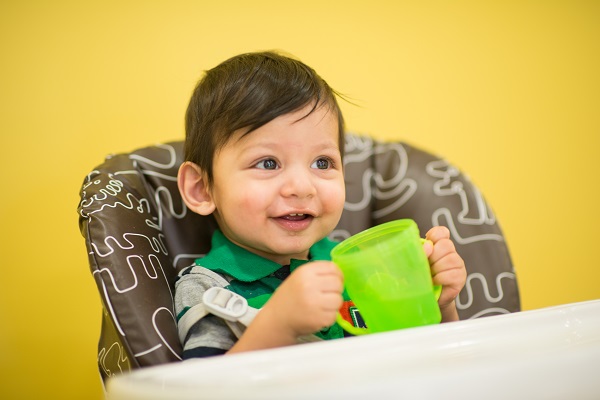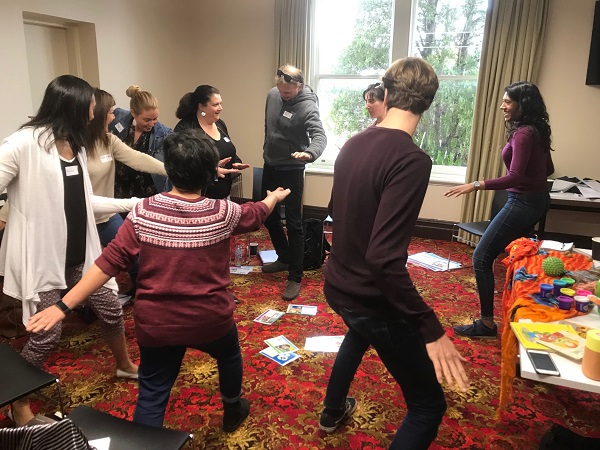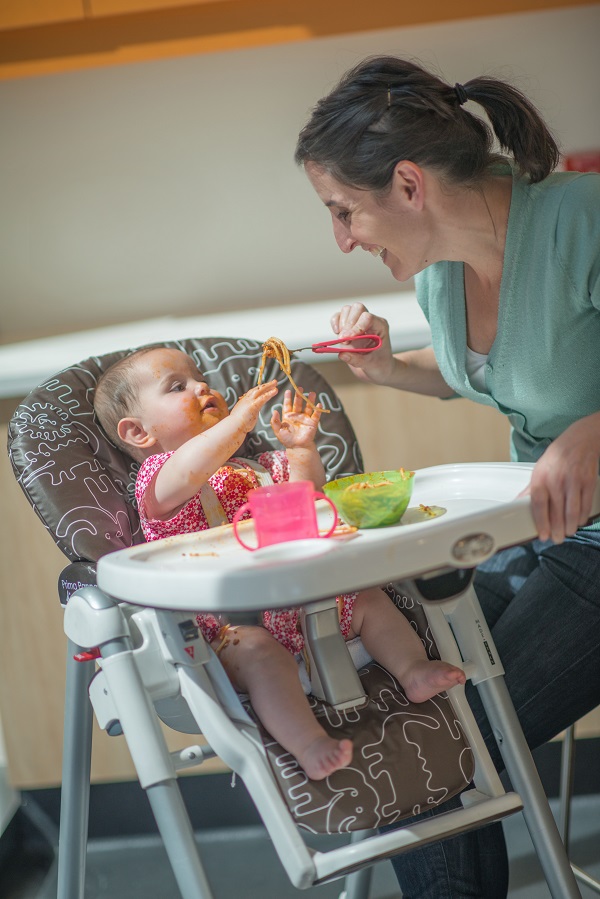The Confident and Understanding Parents (CUPs) approach helps professionals across Australia to establish partnerships with parents to
support children’s healthy eating and active play.
The CUPs approach
When children develop healthy eating and physical activity habits in their early years, they have a greater chance of realising their full potential – today and for life. Health and early childhood professionals have an important role to play in helping parents to feel confident in supporting their children to eat healthy food and be active every day.
Our CUPs approach has
helped professionals across Australia to work with families at risk of vulnerability for enduring positive impact.
We’re passionate about helping professionals to use this transformative approach in supporting parents to make active play and healthy food a part of their children’s everyday life.
The approach supports professionals in their work with families and their children aged 0-5 years. It includes:
- a two-day training program providing professionals with the latest evidence about young children’s nutrition and active play, and strategies for communicating with families from diverse backgrounds
- 10 evidence-based messages that professionals can tailor to the unique needs of families
- specialist resources for professionals
- mentoring to support professionals implementing the CUPs approach.
"I've changed everything." -Parent
One example of a CUPs message is that it’s great for children to use a cup. In CUPs, we love cups! Here’s why: moving from a bottle to a cup can help with children’s appetite for healthy food, reduce their risk of dental decay and contribute to healthy growth.

Learning to use a cup in a CUPs playgroup.
"Parents asked me questions about their child's eating and I had the confidence to answer." -Playgroup leader
Where can the approach be used?
The CUPs program is highly flexible and works best if groups of families work with a trained facilitator. Facilitators come from different professional backgrounds and include playgroup leaders and early childhood educators.
If there’s an
opportunity to regularly meet families and build long-term relationships, then
this approach can really shine.
Supported playgroups can be a great place to use the CUPs approach, but the best place for individual communities will always depend on their unique needs.

Future CUPs facilitators in the two-day training program.
What's unique about this approach?
Our approach is an effective way to engage families who may not visit their GP or maternal and child health nurse for advice.
By bringing evidence to life in social and supportive environments with a trained facilitator, CUPs makes it possible to tackle complex and interrelated issues for long-lasting change in a gentle, casual and meaningful way.
The approach is also dynamic, adapting to the needs of individuals in the community and to the knowledge of the facilitator.
Importantly,
the approach is holistic – supporting predictive behaviours that can lead to
healthy eating and active play through conversations and lived experience.
With long-term, weekly contact between facilitators and families, trusting relationships can emerge that lay a strong foundation for lasting change.

A 9-month-old enjoying a meal with their mother at a CUPs playgroup.
Who can use this approach?
This approach can work especially well with families who are experiencing adversity or unique challenges. But it can also be transformative for any parent who is looking for long-term, holistic support to make changes in their family’s life in a gentle and social environment.
"He's never eaten that before." -Parent
CUPs is a real team effort, where everyone can learn from one another:
- Children enjoy social, early learning and development experiences.
- Parents grow in confidence and tap into crucial social support and preschool, kindergarten and maternal and child health services.
- Facilitatorsbecome confident in tailoring healthy eating and active play evidence in meaningful, useful ways for individual parents and groups of parents.
"We need these resources. They're simple and effective for parents." -Early childhood nurse
Who we are
The CUPs approach was developed by our team from The Royal Children’s Hospital, a leader in healthcare, research and education to improve the health and wellbeing of children, and Murdoch Children’s Research Institute, the largest child health research institute in Australia.
Based at the Centre for Community Child Health and drawing on specialist expertise in child health and development, our multidisciplinary team has collaborated for over ten years on researching and co-designing the approach with communities.
CUPs is based on a successful long-term Victorian pilot completed in 2015 in which professionals helped parents to gain confidence and discover new ways to help their children eat healthy food and be active.
We’re excited to scale
our approach nationwide and see momentum grow.
In partnership with
Save the Children – Australia’s largest aid and development agency dedicated to helping children – the approach is currently delivered in twelve locations (including 31 playgroups) across New South Wales, Tasmania, Victoria and Western Australia. We are currently consulting with
Aboriginal communities about possible adaptations to the approach in remote communities.
"When she's active, she eats better and sleeps better. It becomes part of the routine." -Parent
Find out more
Are you interested in using the CUPs approach in your work with, or for families? We’d love to hear from you! Please contact Judith Myers at
judith.myers@mcri.edu.au.